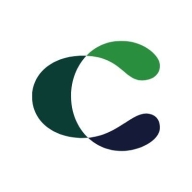

Contrast Security Assess and GitLab are both in the application security category. Contrast Security Assess seems to have the upper hand in dynamic security features while GitLab excels in DevOps integration.
Features: Contrast Security Assess provides real-time application security embedded within applications, significantly reducing false positives and offering immediate threat analysis. GitLab offers an integrated platform with built-in CI/CD pipelines, enhancing software development with strong collaboration tools and seamless workflow management.
Room for Improvement: Contrast Security Assess could enhance its user interface for better accessibility and provide more in-depth documentation. It may also benefit from improved application compatibility and expanded integration with third-party tools. GitLab could improve its initial setup complexity for new users, expand its feature-set beyond standard DevOps functions, and enhance the clarity of its documentation for advanced functionality.
Ease of Deployment and Customer Service: Contrast Security Assess allows for seamless integration with existing workflows and offers responsive support that aids in quick deployment. GitLab offers both self-hosted and cloud options with a straightforward installation process, backed by robust documentation and reliable support, though its initial setup can be complex compared to Contrast Security Assess.
Pricing and ROI: Contrast Security Assess generally has a higher pricing model with a focus on achieving ROI through robust security measures. GitLab offers a competitive pricing framework, emphasizing broader functionalities that lead to substantial ROI through improved development efficiency and lifecycle management.
| Product | Market Share (%) |
|---|---|
| GitLab | 2.1% |
| Contrast Security Assess | 1.1% |
| Other | 96.8% |

| Company Size | Count |
|---|---|
| Small Business | 2 |
| Midsize Enterprise | 3 |
| Large Enterprise | 6 |
| Company Size | Count |
|---|---|
| Small Business | 36 |
| Midsize Enterprise | 10 |
| Large Enterprise | 43 |
Contrast Security is the world’s leading provider of security technology that enables software applications to protect themselves against cyberattacks, heralding the new era of self-protecting software. Contrast's patented deep security instrumentation is the breakthrough technology that enables highly accurate assessment and always-on protection of an entire application portfolio, without disruptive scanning or expensive security experts. Only Contrast has sensors that work actively inside applications to uncover vulnerabilities, prevent data breaches, and secure the entire enterprise from development, to operations, to production.
GitLab offers a secure and user-friendly platform for CI/CD pipeline management, code repository control, and collaboration, enhancing development speed and efficiency. It facilitates automation with extensive customization and tool integration, ideal for DevOps processes.
GitLab supports source code management, version control, and collaborative development. It's frequently used in CI/CD processes to automate builds and deployments while integrating DevOps practices. GitLab allows companies to manage repositories, automate pipelines, conduct code reviews, and maintain development lifecycles. The platform supports infrastructure and configuration management, enabling efficient code collaboration, deployment automation, and comprehensive repository handling. Many organizations commit and deploy developed code using GitLab's capabilities.
What are GitLab's most valuable features?In specific industries, GitLab serves as a backbone for source code management and CI/CD implementation. Companies leverage its capabilities for infrastructure management and deployment automation, thus streamlining project delivery timelines. Its ability to handle configuration management and code repositories effectively aids in maintaining development lifecycles, making it a preferred choice for organizations committed to enhancing their DevOps practices.
We monitor all Application Security Tools reviews to prevent fraudulent reviews and keep review quality high. We do not post reviews by company employees or direct competitors. We validate each review for authenticity via cross-reference with LinkedIn, and personal follow-up with the reviewer when necessary.